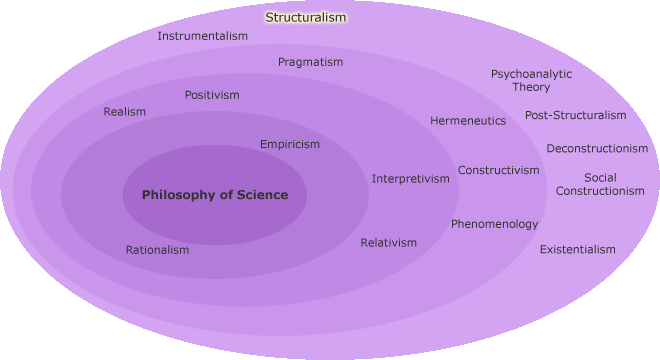Structuralism
Structuralism stresses the research of structures and meanings of structures in understanding the entities. The simple basic structural elements of culture, society and linguistics combine to form complex phenomena with equally complex meanings. You can use structuralism in various research orientations and disciplines.
Structuralism aims at either or both:
- Examining the structural forms or models of the phenomenon.
- Applying forms or models, which explain the internal structure, to the researched phenomenon.
Structuralism is a contrast orientation to existentialism. Post-structuralism is a critique of structuralism.
Links to more information:
Structuralism. Wikipedia, The Free Encyclopedia.
Structuralism. New World Encyclopedia.
Culler, Jonathan. 1998. Structuralism. Routledge Encyclopedia of Philosophy, Taylor and Francis.
Phillips, John William. Structuralism and Semiotics. National University of Singapore.

